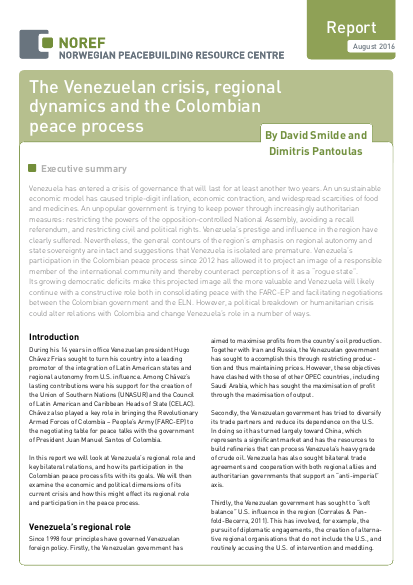
Venezuela has entered a crisis of governance that will last for at least another two years. An unsustainable economic model has caused triple-digit inflation, economic contraction, and widespread scarcities of food and medicines. An unpopular government is trying to keep power through increasingly authoritarian measures: restricting the powers of the opposition-controlled National Assembly, avoiding a recall referendum, and restricting civil and political rights. Venezuela’s prestige and influence in the region have clearly suffered. Nevertheless, the general contours of the region’s emphasis on regional autonomy and state sovereignty are intact and suggestions that Venezuela is isolated are premature. Venezuela’s participation in the Colombian peace process since 2012 has allowed it to project an image of a responsible member of the international community and thereby counteract perceptions of it as a “rogue state”. Its growing democratic deficits make this projected image all the more valuable and Venezuela will likely continue with a constructive role both in consolidating peace with the FARC-EP and facilitating negotiations between the Colombian government and the ELN. However, a political breakdown or humanitarian crisis could alter relations with Colombia and change Venezuela’s role in a number of ways.
